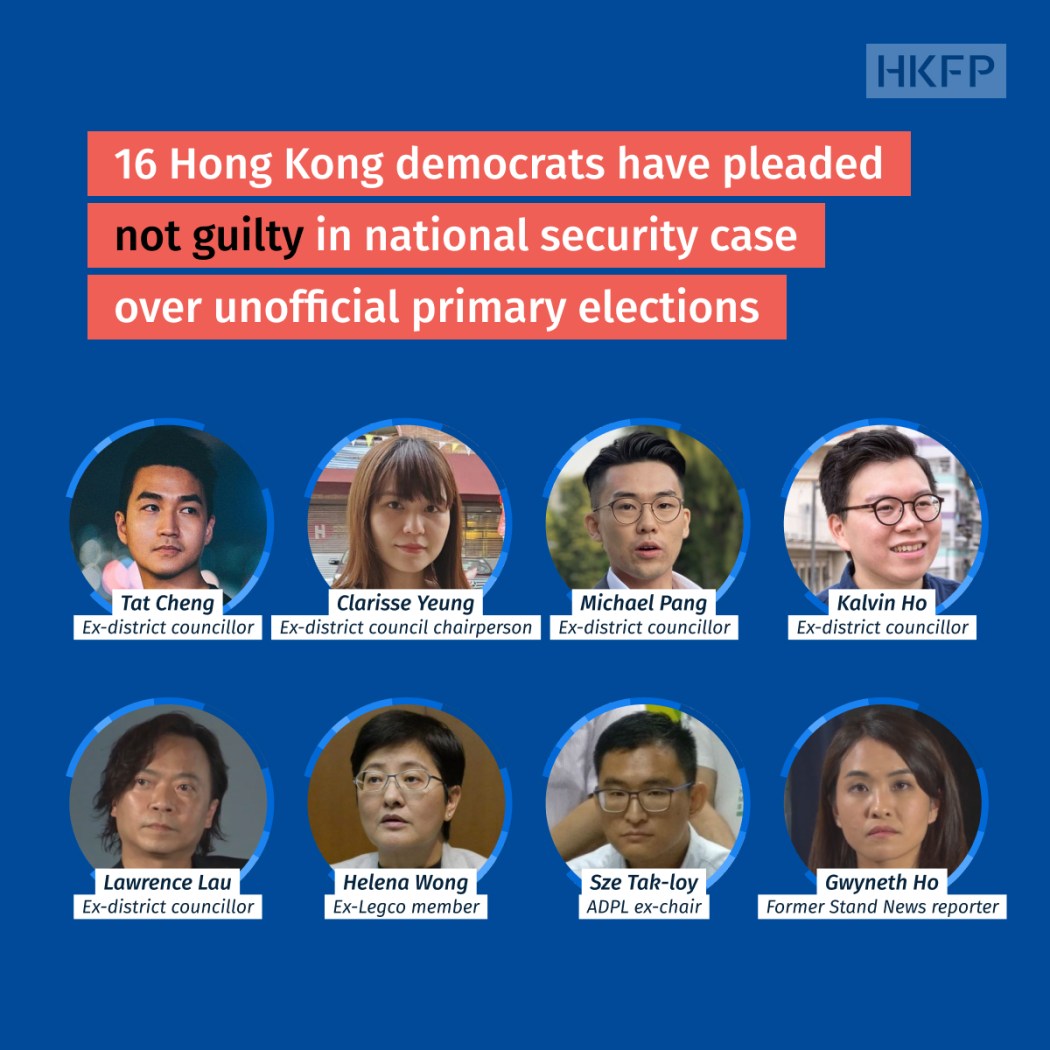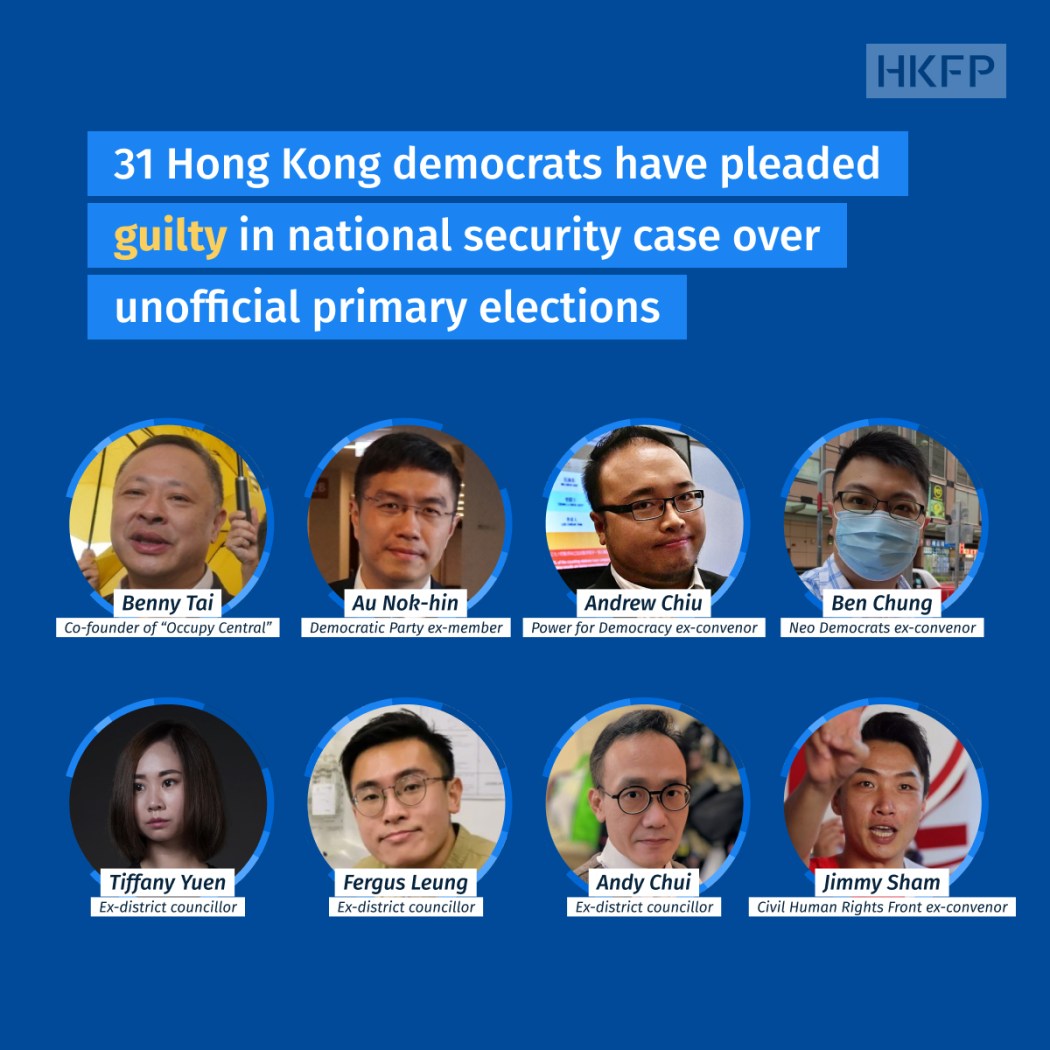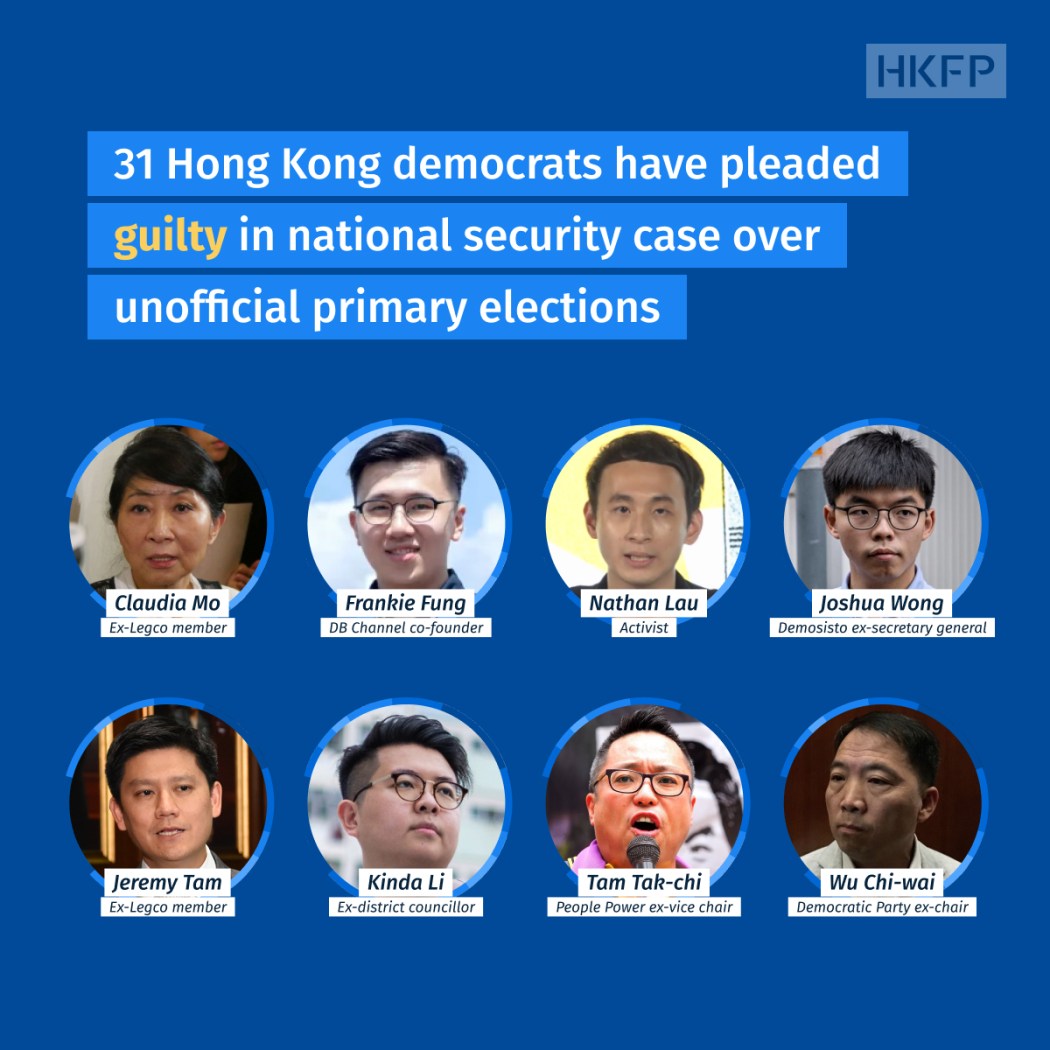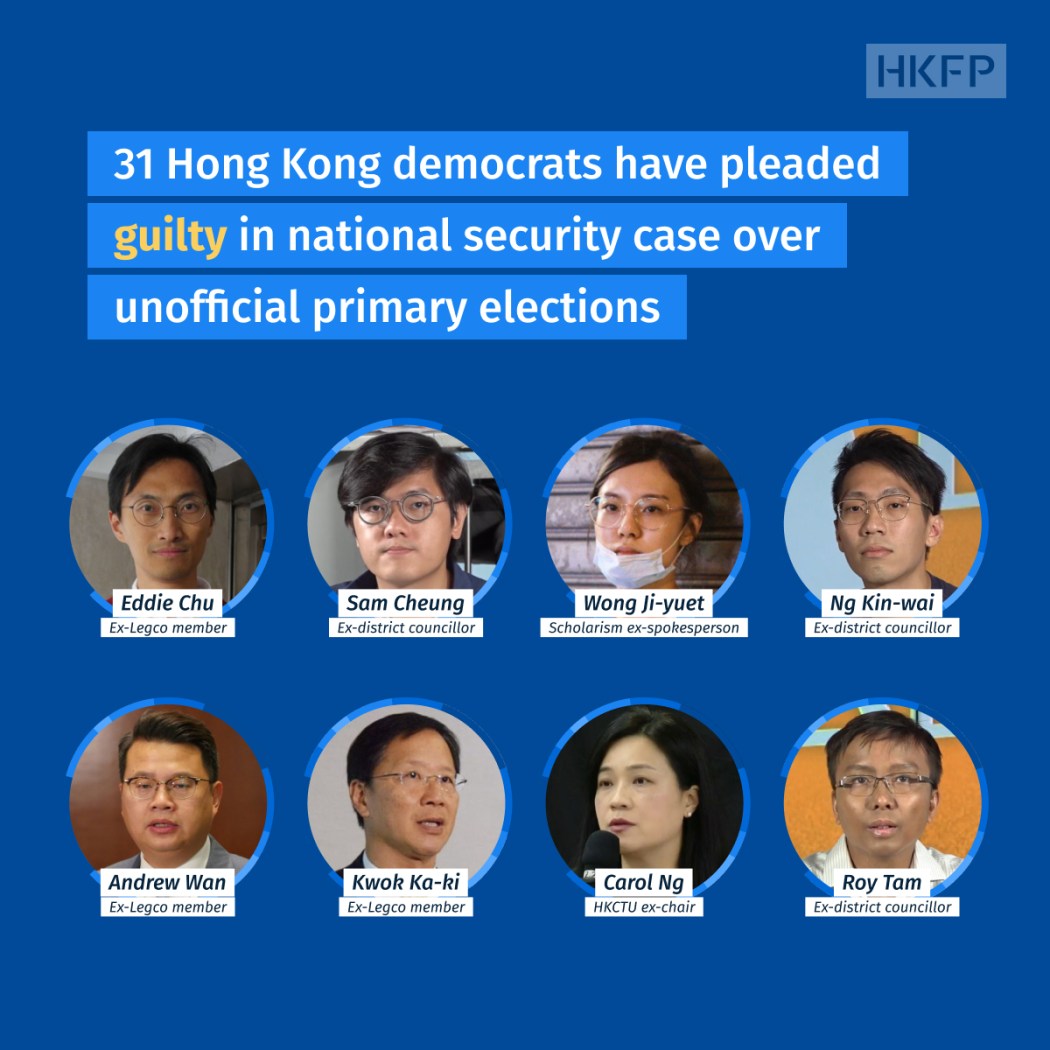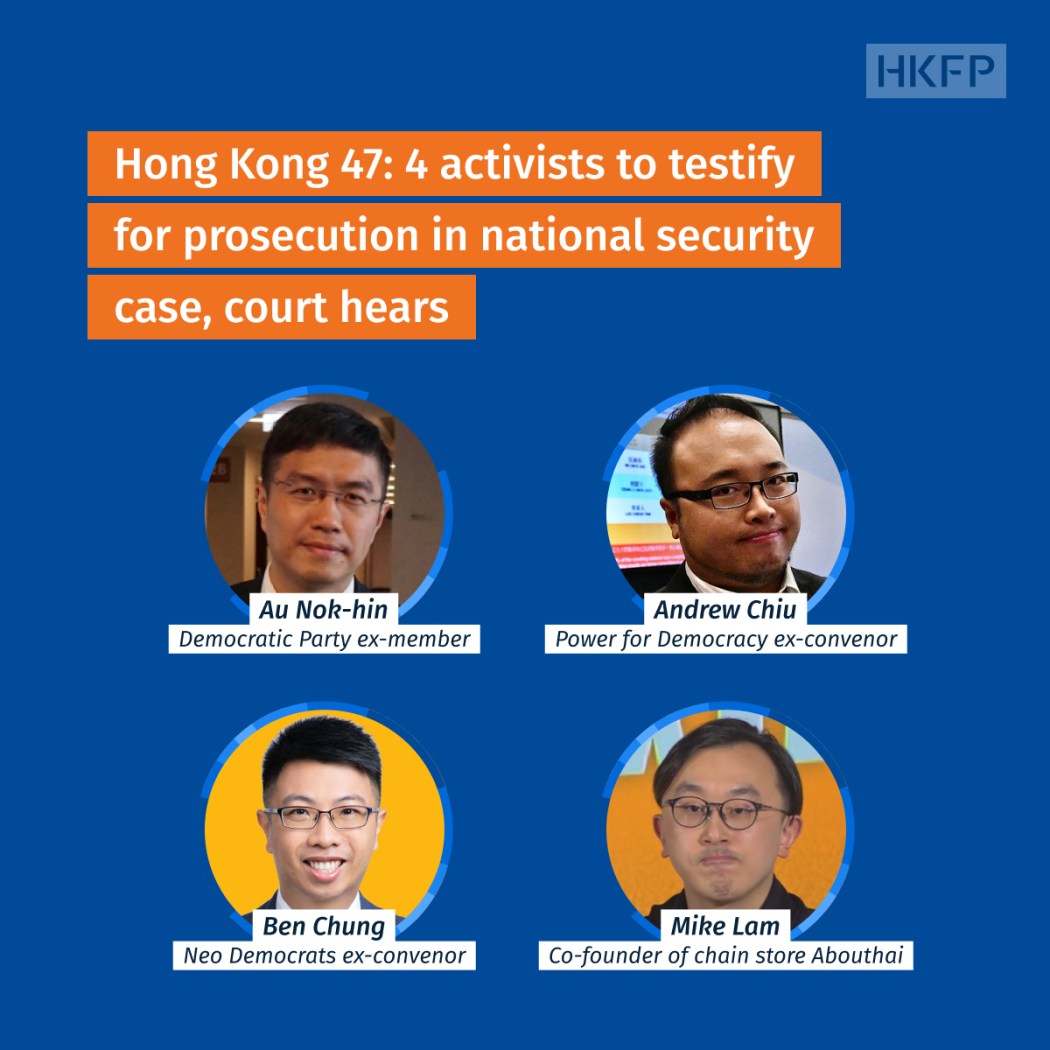It would have been realistic for the democrats to have gained a majority in the Legislative Council had Beijing not intervened with methods outside of the Basic Law, a defendant has testified at a landmark national security trial.
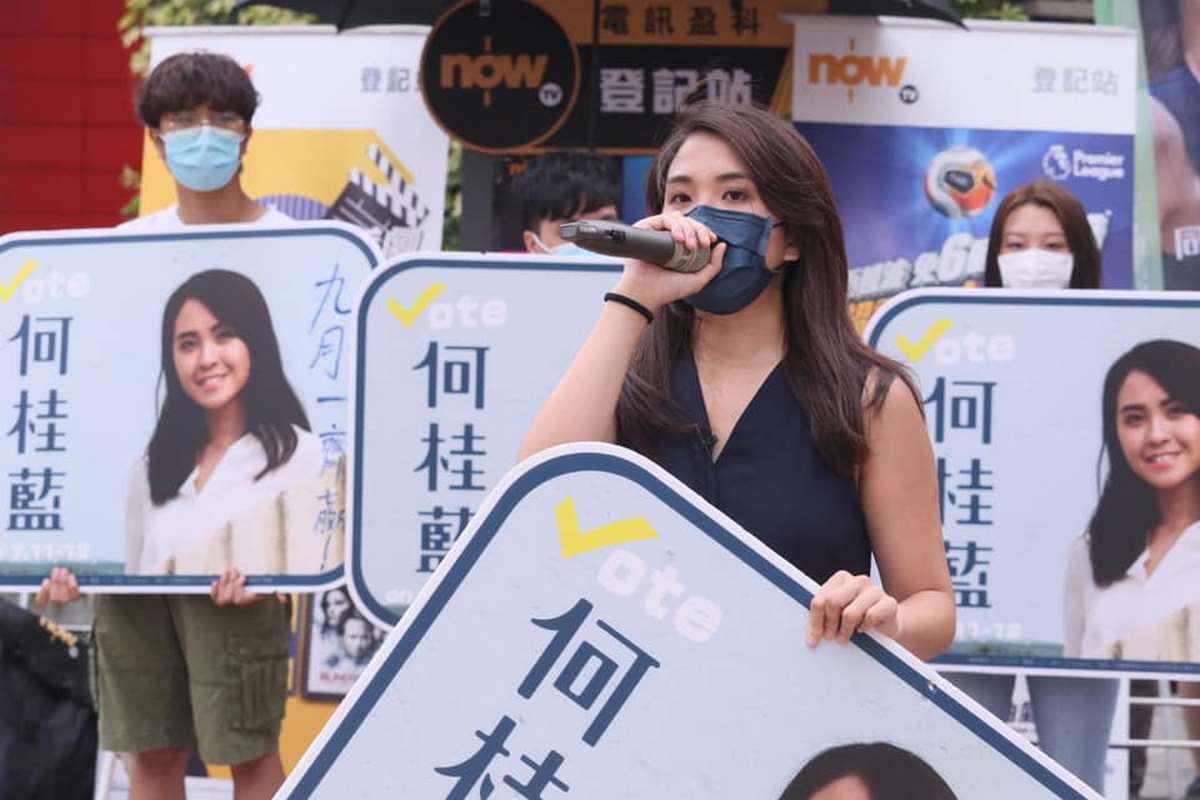
Gwyneth Ho, a former journalist at the now-defunct Stand News, began her testimony on Tuesday. Wearing a long-sleeve pale pink shirt, Ho smiled at the public gallery, winking and making gestures while waiting for the court proceedings to begin.
Ho’s barrister, Trevor Beel, opened his examination by asking Ho about her education and experience as a journalist. The defendant told the court that she studied at Tsinghua University in Beijing “from 2008, the year of the Olympics, to 2012, the year of the anti-national education movement,” prompting laughter in the courthouse.
Ho spoke confidently while testifying, the length of her answers contrasting with the yes-no replies of defendants who had testified previously. At one point, she asked the judges to speak up so she could hear them better.
The 32-year-old is among the 47 democrats charged in a conspiracy to commit subversion case that centres around an unofficial legislative primary election held in July 2020. She and the majority of the defendants have been detained since March 2021. Prosecutors have alleged that the democrats intended to abuse their powers as lawmakers – if elected – to indiscriminately vote down government bills and paralyse government operations. Ho was among the primaries’ candidates.
On Tuesday, judge Alex Lee asked Ho several times if she had considered before the primary elections that the aim of achieving “35+” – or at least half of the seats in the 70-seat legislature – was realistic. Ho did not answer directly.
“You used the word ‘realistic,’ so we must look at this from two aspects,” Ho said, testifying in Cantonese. “If you’re talking about 2019 and 2020, I think it’s possible that the democrats would be able to secure 35 seats through the mandate of the public.”
She added that the public sentiment in 2019 would “support the winning of more seats.”
But if the central government saw that its methods of disqualifying the candidates and interpreting the law were unsuccessful in intervening, Beijing would “definitely come up with a new way.”
“Coming back to your question, if the Central government did not do things that were outside of the Basic Law, I think the democrats seizing ’35+’ would have been realistic,” Ho said.

“So, I don’t know how to answer your question,” she said.
Ho pleaded not guilty alongside 15 other prominent politicians and activists. The conspiracy to commit subversion charge is punishable by up to life imprisonment.
The former journalist is the sixth defendant to testify. Activist Gordon Ng, ex-district councillor Clarisse Yeung, and ex-lawmaker Helena Wong chose not to take the stand.
Benny Tai considered ‘too moderate’
During Tuesday’s hearing, Beel pulled up an article written by defendant Benny Tai. The former University of Hong Kong law professor was one of the primaries’ organisers.
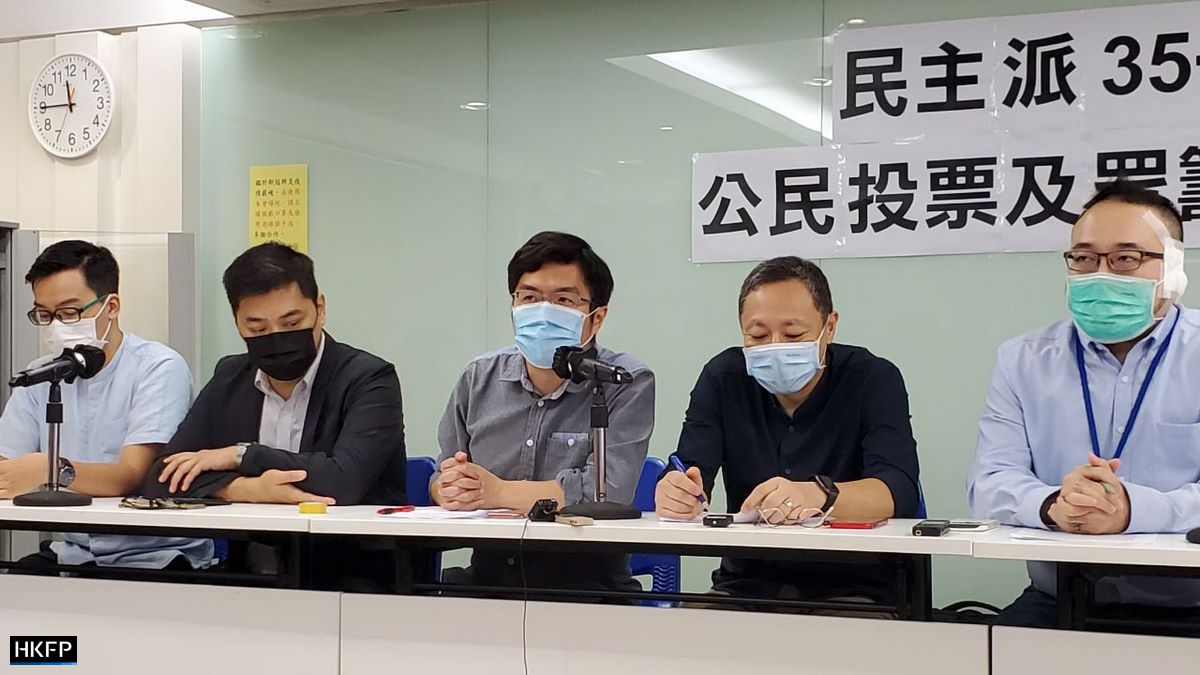
The article, published in the now-defunct Apple Daily in April 2020, outlined ten steps to “mutual destruction,” beginning with the government extensively disqualifying the candidacy of pro-democrats before a roster of plan B candidates are successfully elected. Those democrats, per the timetable, would vote down bills and force the chief executive to resign.
Tai wrote that, eventually, Beijing would declare a state of emergency in Hong Kong and impose its security law on the city, with large-scale detentions of democrats leading to a bloody crackdown. According to Tai’s timetable, the candidates would then indiscriminately vote down bills, including the budget, forcing the chief executive to resign.
Beel said he would go through the steps in the article – called “Ten steps to mutual destruction – the fate of Hong Kong” – and ask Ho if she believed if they were possible, and whether she agreed or disagreed with them.
Unprompted, Ho said: “Before we handle the steps, how about we handle the headline first? I don’t agree with the headline.”
Timetable of Benny Tai’s “Ten steps to real mutual destruction” – click to view
Step 1 (July to August 2020): The government would extensively disqualify the candidacy of pro-democrats, including the incumbent LegCo Members, in the election. The plan B candidates of the pro-democracy camp would run in the election instead.
Step 2 (September 2020): Triggered by the intervention of Hong Kong & Macao Affairs Office of the State Council and the Liaison Office of the Central People’s Government and the said disqualification, more Hong Kong people would be driven to vote for the pro-democracy camp. Coupled with strategic voting, it would allow the pro-democracy camp to secure 35 seats or more.
Step 3 (October 2020): The chief executive and the Department of Justice would commence judicial proceedings to disqualify LegCo members of the pro-democracy camp. However, as court proceedings would take some time, the pro-democracy camp would continue to dominate the LegCo.
Step 4 (October 2020 to April 2021): All the appropriation applications made by the government to the LegCo would be indiscriminately vetoed by the LegCo. The government could only maintain general operation.
Step 5 (May 2021): The LegCo would indiscriminately veto the budget introduced by the government. As a result, the chief executive would dissolve the LegCo and the operation of the government would be maintained by provisional appropriations.
Step 6 (October 2021): There would be an election for a new LegCo. The pro-democracy camp would have to send the plan C candidates to run since the plan B candidates might have been disqualified as well. Nevertheless, they would still manage to secure more than 35 seats.
Step 7 (November 2021): The LegCo members would indiscriminately veto the budget again. The chief executive would thus have to resign and the government would come to a shutdown.
Step 8 (December 2021): The Standing Committee of the National People’s Congress would declare that Hong Kong had entered a state of emergency and the Central authorities would directly apply the National Security Law of the PRC in Hong Kong. The LegCo would be dissolved and a provisional LegCo would be established. The next chief executive would be selected through consultations. There would be large scale of apprehension and detention of the leaders of the pro-democracy camp.
Step 9 (after December 2021): Street rebellion would exacerbate within the Hong Kong community, thus triggering a very bloody crackdown. Hong Kong people would launch a general city-wide strike, which would bring the Hong Kong society to a standstill.
Step 10 (after January 2022): Western countries would impose political and economic sanctions on the [Chinese Communist Party].
The defendant said the use of the word “fate” suggested that the situations outlined would happen “no matter what.”
“Resistance is not certain to happen,” she said, adding that it was “not necessarily the case that Hong Kong people would resist if they were oppressed by the central government.”
Beel also asked Ho if she agreed with defendant Andrew Chiu that Tai had become a more radical leader after the pro-democracy Umbrella Movement of 2014. Chiu, a former district councillor, testified for the prosecution earlier.

“I would describe it as exactly the opposite. After 2014, Tai was continuously attacked and even dissed by some who were more radical. They felt that he was too moderate,” Ho said.
‘End up in jail’
Tuesday marked the 86th day of the high-profile national security case. Beel said last week that he expected Ho’s testimony to take three days.
The barrister also asked the former journalist if, prior to 2020, she had considered leaving her field and entering politics.
Ho said that, in 2014, when digital outlet House News shut down, she thought that “Hong Kong and mainland China were not much different” and that “the protections that [Hong Kong] appear to have actually did not exist.”
House News disbanded almost nine years ago, with one of its founders citing political pressure and an atmosphere of “white terror.”
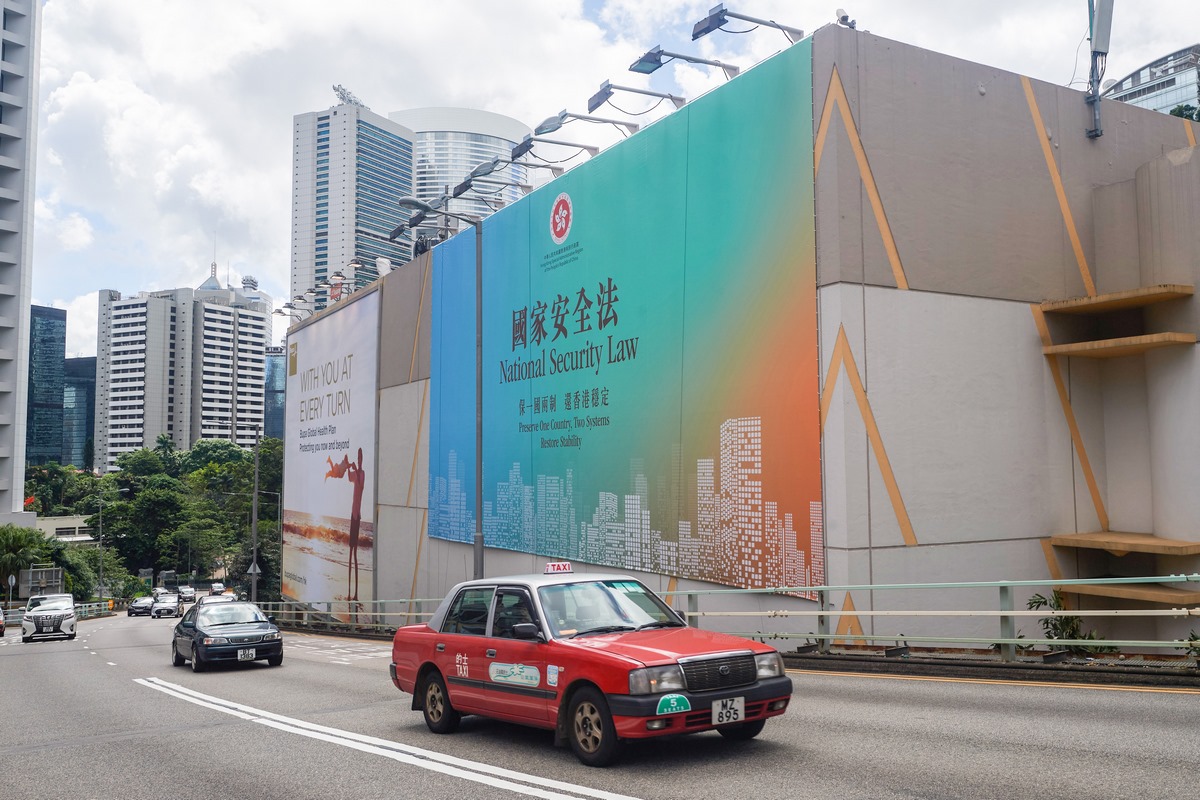
“But before 2019, I did not once think about changing fields. Because I thought that when there is still room in the public opinion space, having people who can sort through political arguments is very important,” she said.
“At the time I was thinking I would do it until I… end up in jail,” Ho said, provoking laughter from the courtroom.
Ho will continue testifying on Wednesday.
In June 2020, Beijing inserted national security legislation directly into Hong Kong’s mini-constitution – bypassing the local legislature – following a year of pro-democracy protests and unrest. It criminalised subversion, secession, collusion with foreign forces and terrorist acts, which were broadly defined to include disruption to transport and other infrastructure.
The move gave police sweeping new powers, alarming democrats, civil society groups and trade partners, as such laws have been used broadly to silence and punish dissidents in China. However, the authorities say it has restored stability and peace to the city.
Correction 19/7/2023: An earlier version of this article misstated that many of the 47 democrats involved in the case had been detained since March 2020, when it should have been March 2021. We regret the error.
Support HKFP | Policies & Ethics | Error/typo? | Contact Us | Newsletter | Transparency & Annual Report | Apps
Help safeguard press freedom & keep HKFP free for all readers by supporting our team


